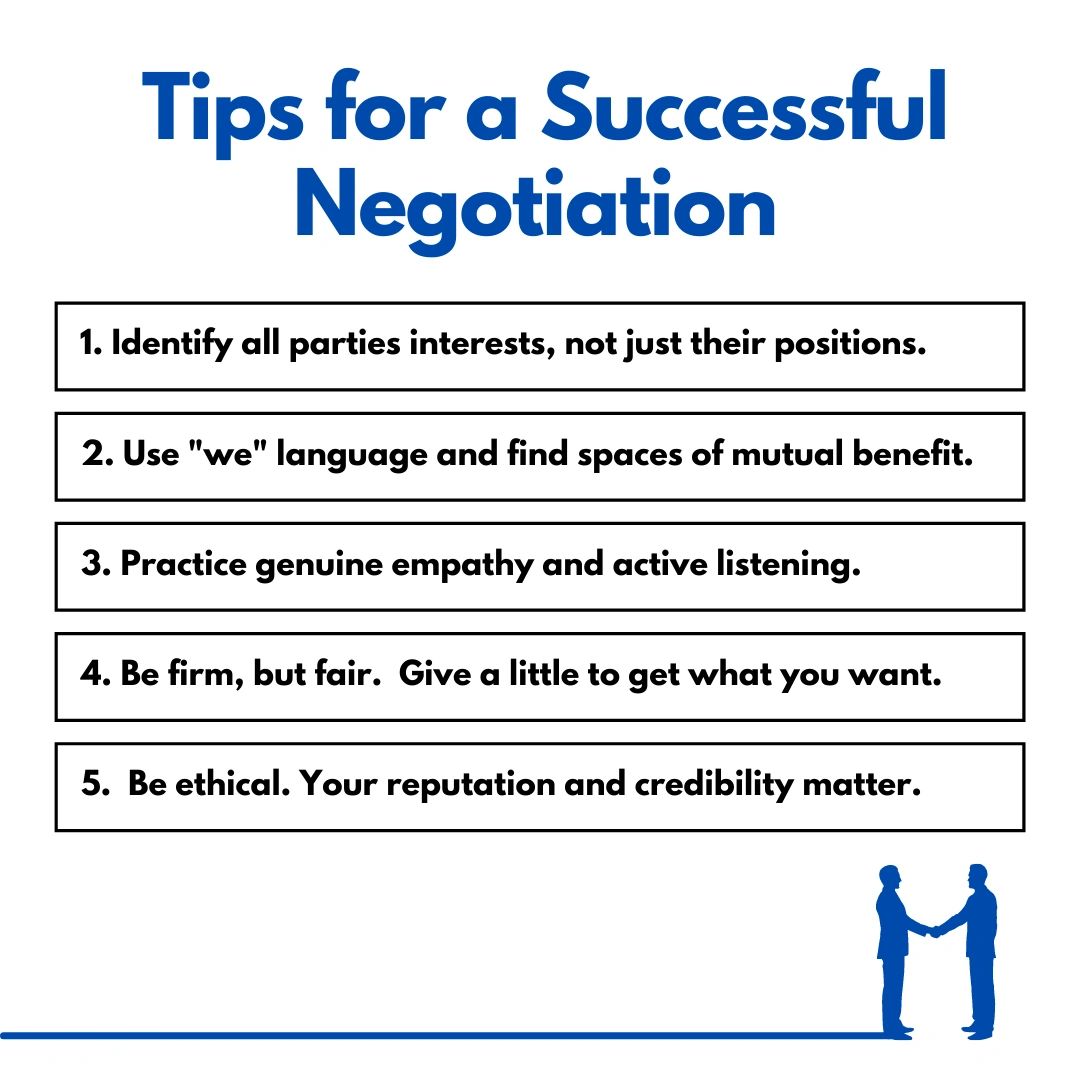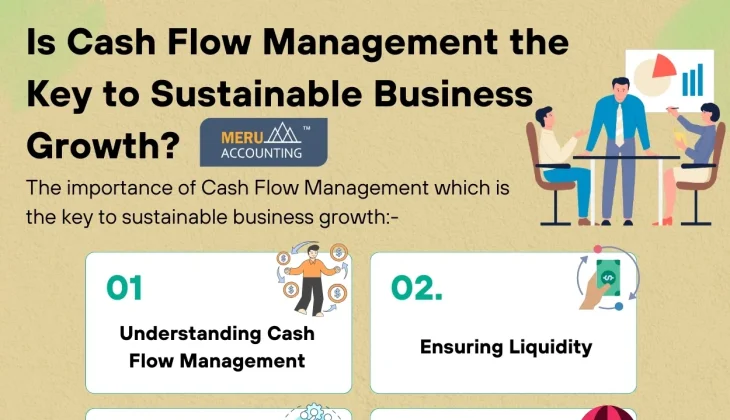Key Points
- It is vital to understand your cash flow needs for effective vendor negotiations.
- Having a thorough knowledge of your suppliers can give you an advantage in negotiations.
- Going into negotiation meetings with clear objectives can lead to better terms.
- Establishing favorable payment terms can significantly improve your cash flow.
- Forging strong supplier relationships is key for long-term success.
Boosting Cash Flow: Tips for Vendor & Supplier Negotiation
Boosting cash flow is crucial for the survival of any business. One of the most effective ways to do this is by negotiating better terms with your vendors and suppliers. Here are some practical tips to help you accomplish this.

The Crucial Role of Cash Flow in Keeping a Business Afloat
Imagine cash flow as the heart of your business. Without it, you can’t pay your bills, invest in growth, or even keep the lights on. As such, managing your cash flow effectively is of utmost importance. One of the most impactful ways to improve cash flow is through effective vendor and supplier negotiations.
Successful Strategies for Vendor & Supplier Negotiation
Negotiating with vendors and suppliers isn’t just about getting the lowest price. It’s about creating mutually beneficial relationships that can help your business thrive. Here are some tactics to consider:
Grasp Your Cash Flow Requirements
Prior to considering negotiation, you must grasp your cash flow requirements. This entails assessing your sales cycles, inventory turnover, and cash conversion cycle. Understanding these aspects will assist you in deciding what types of payment terms and discounts you need from your vendors.
For instance, if you have a long sales cycle, you may need extended payment terms to avoid cash flow problems. Alternatively, if you have a high inventory turnover, you might benefit more from discounts on bulk purchases. Additionally, understanding important small business legal documents can help streamline negotiations with suppliers.
Understand Your Suppliers Through Research
When it comes to negotiation, knowledge is power. Do your homework on your suppliers to understand their business, the market conditions, and their financial health. This information can give you the upper hand in negotiations. For example, if a supplier is having a hard time, they might be more willing to give you better terms to secure your business. Additionally, understanding important small business legal documents can further strengthen your negotiation position.
On top of that, being aware of your suppliers’ strengths and weaknesses can assist you in customizing your negotiation strategy. For instance, if a supplier is recognized for their high-quality products but is also known for their lengthy lead times, you could negotiate for quicker delivery in return for a longer contract. For more insights, check out this supplier negotiation strategy to improve cash flow.
Get Ready for Negotiation Meetings
Being prepared is crucial for successful negotiations. Before you meet with a supplier, collect all the necessary information and define your goals. This will help you remain on track and build a strong argument for improved conditions.
- Establish your priorities: What are the most crucial terms for you? Is it cost, payment terms, or delivery schedules?
- Collect information: Gather data on market costs, competitor offers, and your own financial requirements.
- Prepare your pitch: Practice your arguments and be prepared to counter any objections the supplier might have.
Clarify Your Goals
During the negotiation, clarify what you want to achieve. Whether it’s extended payment terms, bulk discounts, or faster delivery, make sure your goals are known. This clarity will help you stay focused and avoid getting sidetracked.
The most important thing is to be honest and open with your suppliers. Tell them why you need specific terms and how it will be mutually beneficial. For instance, if extended payment terms will allow you to place larger orders in the future, make sure they know. This can create a situation where both parties win. For more insights, check out these small business growth strategies.
Establish Beneficial Payment Terms
Establishing beneficial payment terms is key to keeping your cash flow in the green. One tactic that works well is to bargain for longer payment terms, like net 60 or net 90 days, rather than the typical net 30. This gives you additional time to gather income from your clients before needing to pay your suppliers.
You may also want to think about negotiating staged payments. You might, for instance, decide to pay half upfront and the other half after the product has been delivered or once specific milestones have been met. This strategy can be a great way to better manage your cash flow.
Discuss Discounts and Incentives
Discounts and incentives can drastically lower your expenses. Always inquire about early payment discounts. For example, a typical term is 2/10 net 30, which means you receive a 2% discount if you pay within 10 days.
Additionally, look into bulk discounts. If you can promise to place larger orders, vendors might be open to giving you a reduced price per item. This not only helps you save money, but it also helps you build a stronger relationship with the vendor.
Think About Buying in Bulk
Buying in bulk can be a real game changer when it comes to improving your cash flow. Often when you buy in bulk, you get a lower price per unit, and this can really add up to big savings over time. Just make sure you have the storage space for it and that the items won’t go bad before you get a chance to use them. For more insights, check out these small business loans tips to help manage your finances effectively.
Let’s say, for instance, a small restaurant could negotiate with a food supplier to purchase non-perishable items like canned goods or spices in bulk. This could lower their overall food costs and boost their profit margins. Additionally, understanding essential tax deductions for small business owners can further enhance their financial strategy.
Forming Solid Relationships with Suppliers
Successful negotiations are built on solid supplier relationships. When you have a good rapport with your suppliers, they are more likely to give you the best terms and go above and beyond to meet your requirements. Building these relationships can be a crucial part of sustainable scaling techniques for your business.
Speak Clearly and Directly
Being clear and to the point in your communication is the best way to build strong relationships with your suppliers. Always make sure you are clear about what you need and what you expect. Keep your suppliers in the loop about the status of your business and any changes that might affect your orders. For additional insights, consider these small business growth strategies.
For example, if you anticipate a surge in demand, give your supplier a heads up. This gives them time to get ready and guarantees that you won’t run out of supplies. Additionally, consider implementing sustainable scaling techniques to better manage your inventory during peak periods.
Be Open and Honest
Trust is built on honesty. If you’re open about your financial situation and any problems you’re dealing with, you might find that your suppliers are willing to be more flexible and offer you better terms.
Provide Mutual Advantages
Negotiations should be a win-win situation. Seek out ways to provide mutual advantages. For instance, you could offer to sign a longer-term contract in return for better payment terms or discounts.
Another tactic you can use is to offer testimonials or referrals to other potential clients. This can help your vendor expand their business, which is beneficial for both you and them.

Long-Term Success Negotiation Tips
Success in negotiations doesn’t just mean immediate benefits. It should also pave the way for long-term success. Here are some tips to help you achieve that:
Keep Up-to-Date with Agreements
Never sign a contract and then forget about it. It’s important to regularly review your agreements to make sure they’re still serving your needs. The market and your business needs can change, so you need to make sure your agreements are current. For more on essential agreements, check out this guide on important small business legal documents.
For instance, if you’ve been dealing with a supplier for a year, it might be a good idea to go over the terms to see if they can be improved. You may discover opportunities to negotiate lower prices or better payment conditions.
Improving cash flow is essential for any business, and negotiating effectively with vendors and suppliers can make a significant difference. By securing better payment terms, bulk discounts, and favorable contracts, businesses can free up capital and invest in growth opportunities. Additionally, maintaining strong relationships with suppliers can lead to more reliable service and potential cost savings over time. Learning the art of negotiation and understanding market trends can help business owners make informed decisions and enhance their financial stability.
Develop a Collaborative Approach
View your suppliers as partners, rather than just vendors. This perspective can help to build more cooperative and mutually advantageous relationships. When both parties are committed to each other’s success, negotiations tend to be more constructive and positive.
Stay Current with Market Changes
Because the market is always in flux, your negotiation strategies need to be flexible. Stay up-to-date on industry trends, market conditions, and your suppliers’ business environment. This knowledge will help you negotiate terms that are fair and beneficial to both you and your supplier.
Putting Money into Tools and Resources
Putting money into the right tools and resources can seriously change the game in your negotiation success. Here are some ideas:
Employ the use of financial management software
With the use of financial management software, you can easily keep track of your cash flow, expenses, and payment schedules. This information is crucial when negotiating with suppliers. Software like QuickBooks or Xero can provide you with real-time financial data, making it easier to make informed decisions. For more information on managing your business finances, check out these small business loans tips.
Moreover, these resources can assist you in recognizing spending trends and patterns, which can be beneficial during discussions. For instance, if you see a consistent rise in a specific supplier’s prices, you can bring this up in your next negotiation.
Putting your money in the correct equipment and supplies can greatly affect how well you do in negotiations. Here are a few tips:
Employ Financial Management Tools
Using financial management tools can assist you in monitoring your cash flow, expenditures, and payment timelines. This data is critical when bargaining with suppliers. Applications like QuickBooks or Xero can offer you instant financial information, simplifying the decision-making process.
Moreover, these tools can assist you in recognizing trends and patterns in your expenses, which can come in handy during discussions. For instance, if you observe that the prices of a certain supplier have been progressively rising, you can bring this up during your next discussion.
Consider Hiring a Negotiation Specialist
There are times when it’s worth the investment to hire a negotiation specialist. These experts have the experience and know-how to get the best terms for your business. They can also offer insights and strategies that you might not have thought of.
For example, someone with negotiation skills could recommend different payment options or find places where you could reduce expenses. This knowledge could save you money and enhance your cash flow over time.
Train Your Staff in Effective Techniques
Your staff are key players in the negotiation process. Train them in effective techniques and negotiation strategies. This could involve training courses, workshops, or even basic guidelines on how to approach negotiations.
Training your team to have the necessary skills and knowledge means everyone will be on the same page and work towards the same goals. This united approach can result in more successful negotiations and improved terms for your business.
Conclusion: Attaining Financial Solidity Through Skillful Negotiation
Efficient vendor and supplier negotiations are crucial for enhancing your cash flow and guaranteeing the longevity of your enterprise. By comprehending your cash flow requirements, investigating your suppliers, and getting ready for negotiations, you can obtain improved conditions and establish robust, mutually advantageous associations.
Keep in mind, the secret to successful negotiations is straightforward communication, openness, and a concentration on shared advantages. By putting resources into the correct tools and resources, you can improve your negotiation skills and accomplish long-term financial stability.
When you want to get the most out of your Employee Retention Tax Credits refundable claims, it can be helpful to learn more about how you can benefit from expert assistance. Visit ERTC Express to get started.
Questions That Are Frequently Asked (FAQ)
Here are some frequently asked questions and their answers to help you navigate vendor and supplier negotiations. For additional guidance on growing your business, check out these small business growth strategies.
What is the best way to prepare for a negotiation meeting?
The best way to prepare for a negotiation meeting is to gather all relevant information and outline your objectives. This includes understanding your cash flow needs, researching your suppliers, and practicing your pitch. Being well-prepared will help you stay focused and make a compelling case for better terms.
How do I request improved payment terms without damaging our relationship?
When requesting improved payment terms without damaging the relationship, it’s essential to be open and explain why you require specific terms. Emphasize how these terms will benefit both parties and create a mutually beneficial situation. Clear communication and mutual benefits are crucial for preserving a positive relationship. For more strategies on maintaining good business relationships, check out these small business growth strategies.
How does market research factor into supplier negotiations?
Market research is a significant component of supplier negotiations. Having a comprehensive understanding of market conditions, what your competitors are offering, and the business environment of your suppliers gives you the upper hand and allows you to customize your negotiation strategy. This information allows you to make educated decisions and get more favorable terms. For more tips on navigating business challenges, explore our guide on small business loans.
Does buying in bulk really save money?
Yes, buying in bulk can save a substantial amount of money. When you buy in bulk, the price per unit often decreases, which can lead to significant savings over time. However, make sure you have enough storage space and that the items won’t expire before you can use them.
How frequently should I look over my supplier contracts?
It’s a good idea to go over your supplier contracts on a consistent basis, at least annually. The market and your company’s requirements can shift, so it’s crucial to keep your contracts current. Regular check-ins can assist you in spotting areas where you can make improvements and negotiate more favorable conditions.
What tools can help with financial management and negotiations?
Financial management software like QuickBooks or Xero can help you keep track of your cash flow, expenses, and payment schedules. These tools provide real-time financial data, making it easier to make informed decisions during negotiations. Additionally, consider hiring a negotiation expert if needed and educating your team on best practices.

